New viruses 'killing amphibians' in Spain
- Published
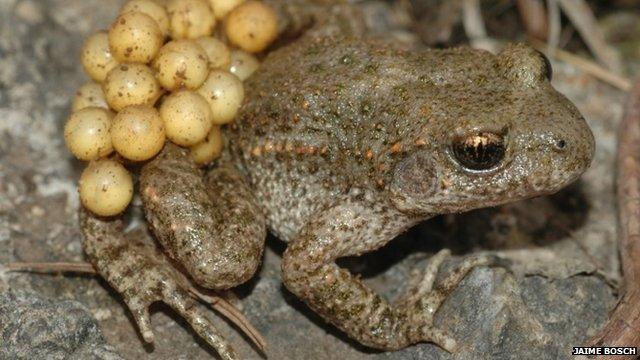
The common midwife toad is one of several species that have been hit by the new strains of Ranavirus
A deadly new disease has emerged that is wiping out amphibians, scientists report.
A number of viruses have been found in northern Spain that are killing frog, toad and newt species. Infected animals can suffer from ulcers on their skin and die from internal bleeding.
Researchers fear the strains, which belong to the Ranavirus group, have already spread to other countries.
The study is published in the journal Current Biology, external.
Lead author Dr Stephen Price, from University College London, said: "Until the outbreaks, we didn't really know about this lineage of virus.
"But since these die-offs began, we've started to see them elsewhere - in China in giant salamanders, and it looks like they are emerging in places like France and the Netherlands as well."
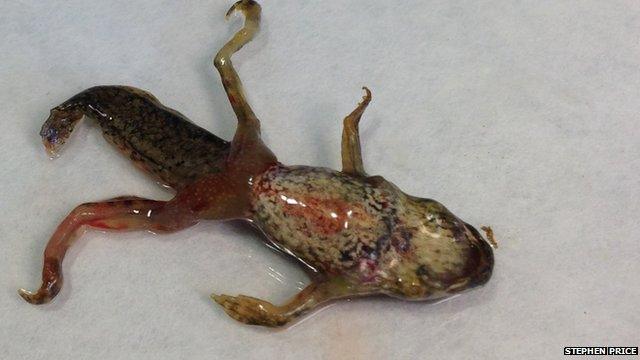
The viruses cause internal haemorrhaging and some animals have large open sores on their skin
Dead amphibians were first spotted in the Picos de Europa National Park, in Spain, in 2005.
An investigation by a team of researchers found that a range of new viruses were the cause.
Two of the viruses, called CMTV-like Ranaviruses, were infecting large numbers of animals.
What is unusual is that they can jump between a range of species, killing off frogs, toads and newts.
Dr Price said: "In the Picos de Europa National Park, we've seen major population collapses in three species: the common midwife toad, the common toad and the alpine newt. But we also found all the common amphibian species in the park were highly susceptible and experiencing disease and mortality.
"It is a pretty graphic disease with a high kill-rate. We've shown these viruses have caused simultaneous declines in several species of host."
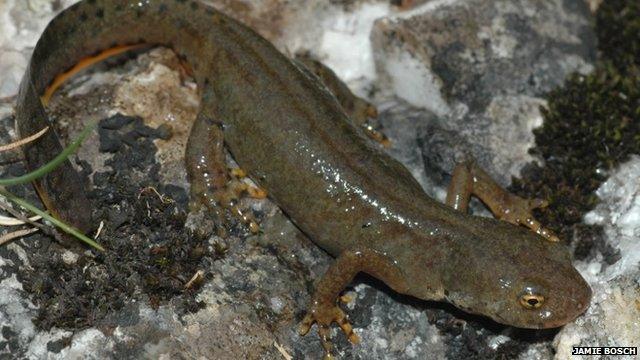
Alpine newts have also been killed by the viruses in Spain
The researchers believe the virus can even spread to reptiles.
"We recorded a snake that had been feeding on amphibians infected with disease, and it showed signs of the virus," said Dr Price.
Conservationists are especially worried about these new viruses because 41% of all amphibians already face extinction, according to the International Union for Conservation of Nature (IUCN).
Another disease, called the chytrid fungus, has spread around the world, killing off many populations.
Scientists fear that if the new viruses spread, they could have a devastating effect on these already vulnerable animals.
The research was carried out by scientists at UCL, the Zoological Society of London, Queen Mary University of London, the Museum of Natural Science in Madrid, and the Picos de Europa National Park.
- Published8 November 2011
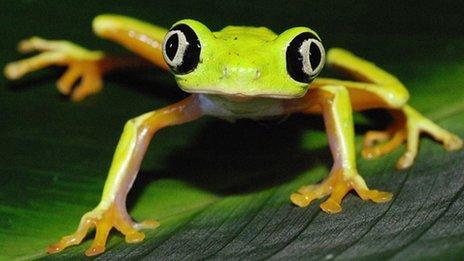
- Published26 September 2011
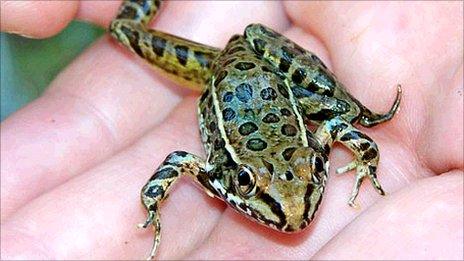
- Published1 June 2011
- Published30 April 2010